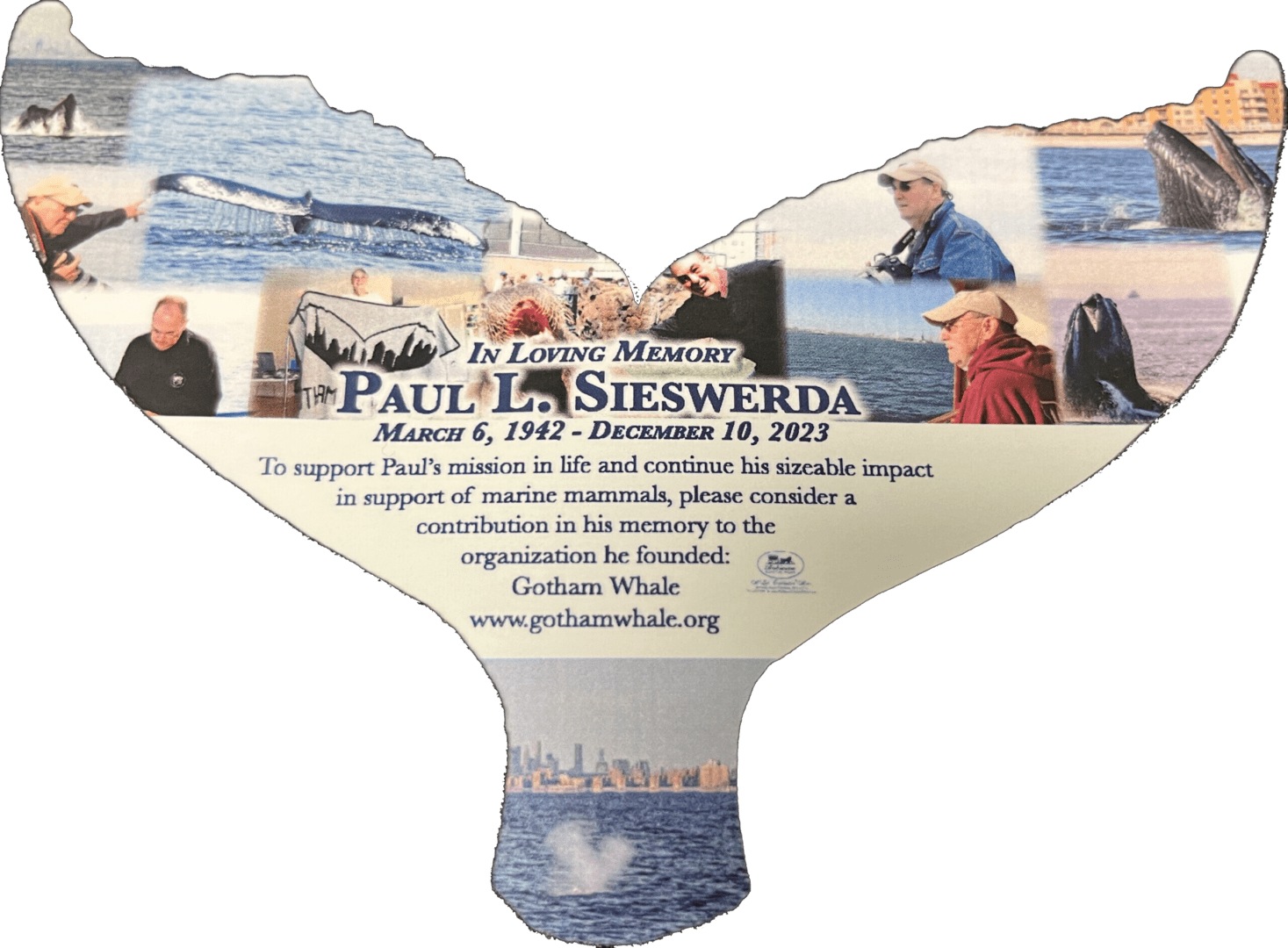Photos and text by Dr. Merryl Kafka, Director of Education, originally published in The Gam, January 2023
What better way to “marinate†your students than with a total immersion into a marine biology curriculum onboard the American Princess with Gotham Whale!

With the generous support of Con Edison of the Staten Island division, the Harbor View School and the Marsh Avenue Expeditionary School partnered with Gotham Whale for a rich infusion of marine biology. During the past year school programs were delivered via zoom on several topics about whale research and the biology and adaptations of whales, fish, and marine invertebrates. After a two-year wait for the final culmination of Science at Sea on board the American Princess, the students, teachers, and parents were all ship-shape and ready for this adventure.

The vessel was turned into a floating classroom for over 130 eager and excited students, with six hands-on stations: Navigation, Plankton Investigations, Fish Diversity, Invertebrate Zoology, Whales, and Physical/Chemical Oceanography. Every 25 minutes, small groups of students rotated to another station. All activity ceased as soon as Captain Tom spotted pods of playful Atlantic Bottlenose Dolphins leaping and spinning out of the water.

Although we did not find humpback whales, which are the focus of Gotham Whale’s research, the frolicking dolphins made up for it. Perhaps the cooler temperature and rain the week prior signaled the whales to go further out to sea, or begin their winter migration to the Caribbean, where they mate and give birth. Finding whales is no easy task, and humpbacks were only recently removed from the Endangered Species List. They are still, however, a threatened species and protected by the Marine Mammal Protection Act. Collisions with ships, entanglement with ghost (loose) fishing lines, marine debris, and plastics are some of the dangers that marine mammals and other ocean dwellers such as fish, turtles, and birds also face.

Teachers make all professions possible and although the first week of May is designated as National Teacher Appreciation Week, I always appreciated my teachers. On this special day, I had some of the best marine biology teachers jump onboard to help. I was proud to announce to the students that one of my on-board volunteers, Lou Siegel, was my marine biology teacher 50 years ago! And I am still learning his crafty skills.

Our plankton expert, Bob Cummings, was my Senior Instructor at the NY Aquarium for over 25 years; Kristi Collom is Gotham Whale’s Dolphin Researcher; Mitch Steinhardt is staff on board the American Princessand a GW naturalist. Ned Black, also a veteran marine bio teacher and awesome volunteer, came equipped with all the instruments for water-quality monitoring. Professor of Biology from Kingsborough Community College Dr. Christina Colon volunteered at the whale station. I was grateful that dedicated educators were awhaleable to make this Science at Sea program a great learning adventure for our partners in education.


